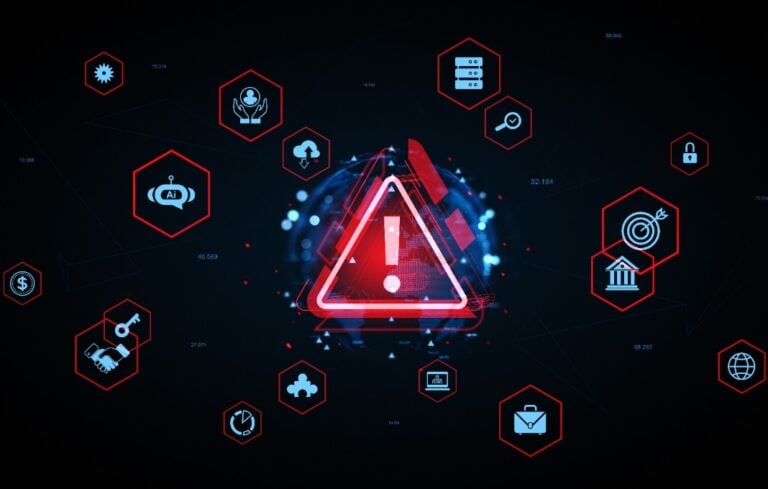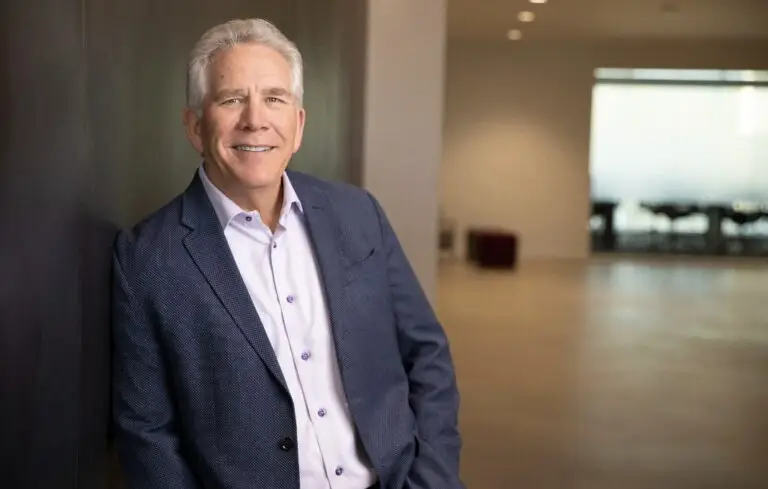Wade Foster, CEO of workflow automation app developer Zapier, has taken an unconventional approach toward growing his organization. Zapier has grown from a three-person operation based in Missouri to a team of 180 employees across 17 countries and 25 states that works entirely remotely.
The company was founded in 2011 and announced a “delocation package” last year, where new employees are given the flexibility relocate to work anywhere they want—a move that increased applications by over 50%.
Zapier has no headquarters, but Foster is now based in the Bay Area and relies on technology like Zoom and Slack to keep everyone in the organization on the same page, and leverages in-person onboarding sessions and company retreats to keep the company connected and its culture thriving.
Chief Executive spoke with Foster about how he manages the organization and maintains a robust company culture. Here’s what he had to say:
How he manages a 100% remote organization
Zapier started as a side project. So it was a nights and weekend thing for a while, and nights and weekends don’t have offices. We got used to working that way. In the summer of 2012 and the three of us [Foster and Zapier co-founders Mike Knoop and Bryan Helmig] lived together in a two-bedroom apartment. And that was the only time in the company’s history where everyone was in the same place. Mike moved back to Missouri to be with his then girlfriend, now wife. She was wrapping up law school, and we were not going to kick him out. He was too important to what we were trying to do as a company. So we figured, “Hey, we’ve been working remotely before when it was a side project. We can go back to working that way.” So that’s kind of what set us down this path.
And then the second piece that kind of continued this path was this was my first company that I’ve run. I never hired anyone before this. In 2012, when I was just learning how to hire folks for the first time, I got advice. “Why don’t you for the first few hires, instead of figuring out hiring, why don’t you go to colleagues that you’ve worked with in the past, that you have a good rapport with, that you know you can work with again?” And so we hired someone in Chicago, Illinois, that I’d worked with before and we hired someone else from Missouri that I’d worked with before. That kind of pushed us even further down this remote path, because you’re out here in California, which Brad and I were, then we had folks in California, Missouri, and Illinois at that point in time. So that set us down the path and then we just leaned into it.
Along the way, I think there are some distinct advantages, and I think there are things that are harder too. The advantages that you get are you have access to a worldwide talent pool. If you restrict yourself to 30 miles from your headquarters, you’re going to have a hard time hiring. And you see this now in the barrier where Google, Facebook, Apple, they price out any other employer because they can afford to. They can pay salary rates that no other company, even well-funded startups can compete with. The Bay Area challenge is really, really competitive. But when you open yourself up to remote, you’re able to work with folks from all over the world, and so that makes it a lot easier to find great folks.
It makes it easier to retain people as well. When people are able to work from home, are able to build their work life, they integrate it better with their home life. So folks with families, kids, grandparents, parents, all those things, when you’re having to commute, it makes it hard to be there for them. And so in a remote setting, you’re able to blend that a little bit better. And as a result, folks figure out it’s a good gig, it supports their lifestyle, and so they don’t leave. From a company continuity perspective, that is really powerful. So those things are the two distinct advantages.
The things that we have to work on: we have to work on our communication. You’ve got folks all over the world. You can’t just duck into a conference room or catch someone in the hallway. So you have to be really disciplined about how you do the things that you’re going to do, whether it’s ship product, serve customers, market to customers, you have to build some process around that. You have to talk about here’s how we debate things, here’s how we communicate things, here’s how we raise issues. And that can be a bit different from how you do it in an office, so that’s a skill set that we had to hone over time.
And so that discipline is really important. But the funny thing is, along the way, I used to think remote was so much different, but nowadays I feel like remote and in-office are more similar. They have more in common than they don’t. We’re 180 people now and I talk to founders who are at the same stage as us. And the things that they’re dealing with are the same things we’re dealing with. And there are a few things that we have an easier time with, there are a few things they have an easier time with, but scaling companies is hard for everybody and so the problems are the same.
On maintaining a thriving company culture
I categorize the culture into two different things: One I call the culture side of it, and then two is the camaraderie over relationship aspect. From a culture standpoint, we have a set of values that really drive us, a mission and values that drives us. And so there are things like default action. When you’re in a remote company, you need to have self-starters in your org that are curious and can grab problems by the horns.
Second value, deep off of the transparency. When you have folks that are deep off into action, you want to make sure that they have the best information at their fingertips. You need to do a good job documenting your work and sharing it out there so that folks can be self-starters and can take that action. And we have a set of other values as well that we use, but we ingrain that into the company by using that as a part of the hiring process and part of the performance review process. And so everyone is constantly thinking about what are these cultural values and what is it that helps us be successful. And it’s come to the point where I certainly still preach them, but the organization starts to preach them too.
We use Slack to communicate, and just the other month one of our engineers created a set of emojis that represent our company values. And now when they see someone do something in Slack that is representative of those values, they’ll use an emoji reaction that represents those values. The company starts to kind of pick these up on their own and it now becomes like organically reinforcing things that drives your company forward. That’s really helped us from a cultural standpoint.
From a camaraderie standpoint, this is something you also have to work for because in a remote org, sheer loneliness can set in. You’re working by yourself all day. You have to find ways to build those connections and those bonds with your teammates. A few of the things we’ve done that have worked really well, one we still do in-person things. Twice a year we have a semiannual company retreat, fly the whole team in together to spend time with each other. And those end up being like big reunions where we celebrate the last six months, we plan for the next six months. And they’re really just a good time of building bonds with your teammates. So that’s one thing.
We do this thing called Pair Buddies through Slack, where we have this bot called Donut that every week randomly pairs you with another person in the org. Then you just jump on a Zoom call and talk about your hobbies, talk about your life, talk about work, talk about whatever. It’s a super informal call and it’s just there to help you build a relationship with someone else in the company.
We have to recreate the water cooler. In a remote company there’s no place to just talk about, you know, the game last night or what happened this weekend, or whatever is the current thing of the week. So one of the things that we have is a whole bunch of off-topic, non-work channels. And they’re all prefixed with fun. So there’s like fun gardening, fun World Cup, fun football, fun home ownership, or whatever. And folks from the company will just jump into those channels and they’ll talk about their interests there.
So those types of things, they build those relationships. They build those bonds, which are really important. I heard this analogy once: “You want get to know your neighbor before your house is on fire.” And it’s kind of similar in a remote company or any company where you want to get to know your teammates before you dive in and work on like a really tricky, hard problem where you’ve had a relationship already established and trust. You know they’re a good person, they know you’re a good person, and that allows you to get through the tricky, heavy problems together. So these camaraderie relationship-building rituals become really important for a remote company.
Related: The Team Makes The Difference: Why A CEO’s Success Depends On Their People







